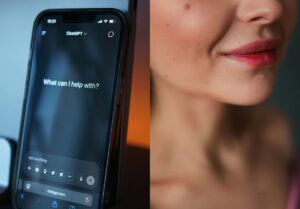Beware: 7 Security Risks of Keeping Bluetooth Active on Your Smartphone

Beware: 7 Security Risks of Keeping Bluetooth Active on Your Smartphone
In an era where connectivity is key, keeping Bluetooth active on your smartphone might seem like a convenience. However, this seemingly harmless feature can open the door to a host of security risks. Here are seven reasons why you should reconsider keeping Bluetooth on when not in use:
1. Unsolicited Messages and Malware
Hackers can exploit Bluetooth to send unwanted messages or files to your smartphone without your permission. These files often contain malware designed to compromise your device, potentially leading to data theft or damage. By keeping Bluetooth active, you inadvertently leave a door open for cybercriminals to infect your phone with harmful software.
2. Unauthorized Data Access and Blackmail
Bluetooth can be a gateway for hackers to secretly access sensitive data on your phone, such as contacts, photos, and personal information. Once they have access, they can use this data for malicious purposes, including blackmail. The silent nature of these attacks means you might not even realize your privacy has been breached until it’s too late.
3. Remote Control of Phone Features
Another significant risk is that hackers can gain control over your phone’s features. They can make calls, send texts, and even alter settings without your knowledge or consent. This level of control can lead to unauthorized charges, privacy violations, and a compromised device that serves the hacker’s agenda.
4. Keyless Car Entry Vulnerability
For those with cars that feature keyless entry, Bluetooth can pose a serious security risk. Cybercriminals equipped with the right tools can intercept and exploit Bluetooth signals to unlock and steal your car. This sophisticated form of theft bypasses traditional security measures, making your vehicle vulnerable to high-tech criminals.
5. Data Tampering and Fraud
Data sent between Bluetooth-connected devices can be tampered with by hackers. This interception can lead to identity theft or financial fraud, as the altered data might contain sensitive information like login credentials or financial details. Protecting your Bluetooth connection is crucial to prevent such manipulations.
6. Service Attacks
Hackers can launch denial of service (DoS) attacks by flooding your phone with connection requests. This overwhelming number of requests can cause your phone to freeze or crash, rendering it unusable. Such attacks not only disrupt your daily activities but also pose a threat to the overall security of your device.
7. Eavesdropping on Communications
One of the most invasive risks of having Bluetooth active is the potential for hackers to intercept and eavesdrop on your phone calls and messages. By capturing Bluetooth signals, they can listen in on private conversations and read sensitive messages, compromising your privacy and security.
Protecting Your Smartphone
While Bluetooth offers many conveniences, it is essential to weigh these against the potential security risks. To protect your smartphone, consider turning off Bluetooth when it is not in use, regularly updating your device’s software, and using security measures such as encryption.












